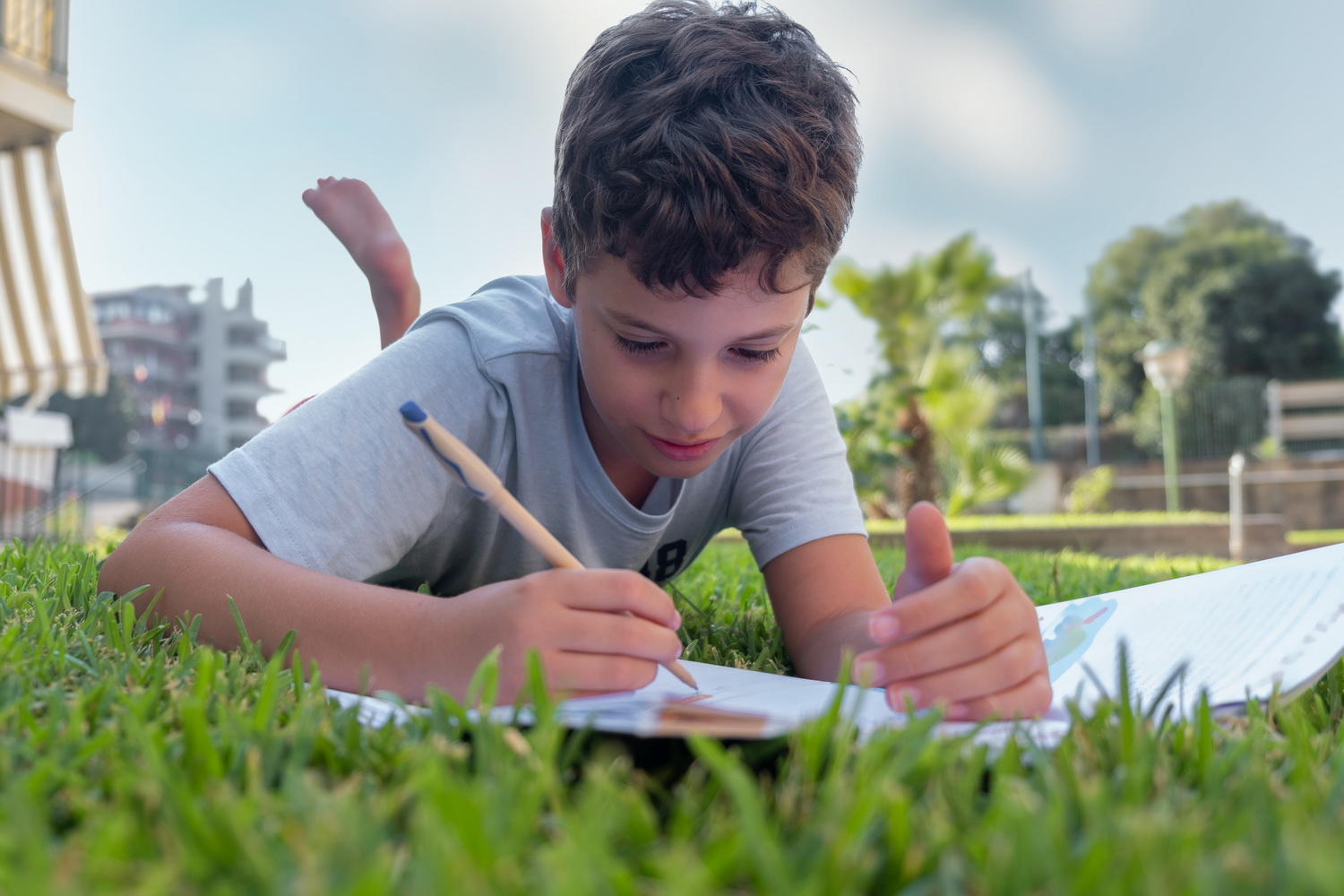Sequencing Skills Reading Fiction Worksheets for 5-Year-Olds
5 filtered results
-
From - To
Enhance your child's reading comprehension with our Sequencing Skills Reading Fiction Worksheets, designed specifically for 5-year-olds! These engaging worksheets help young learners develop critical sequencing skills by guiding them to arrange story events in the correct order. Worksheets feature colorful illustrations and age-appropriate texts to make learning fun and interactive. With a variety of activities, children will strengthen their storytelling abilities and improve their overall understanding of narratives. Ideal for home or classroom use, our resources promote foundational skills essential for literacy growth. Foster a love for reading and support your child’s educational journey with our expertly crafted worksheets today!
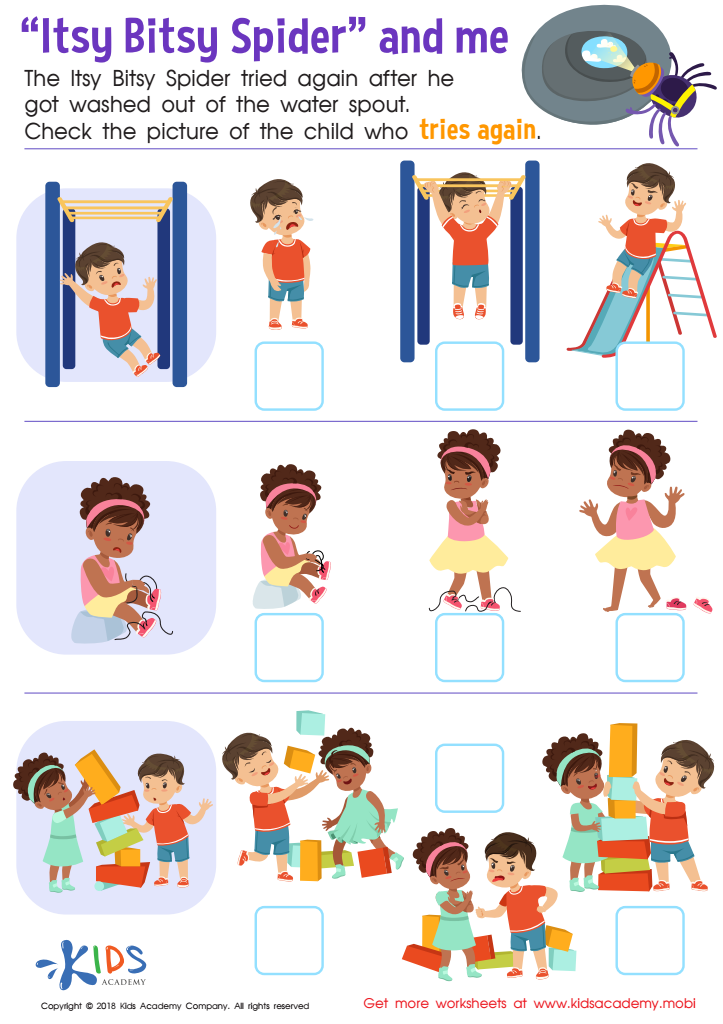

Itsy Bitsy Spider and Me Worksheet
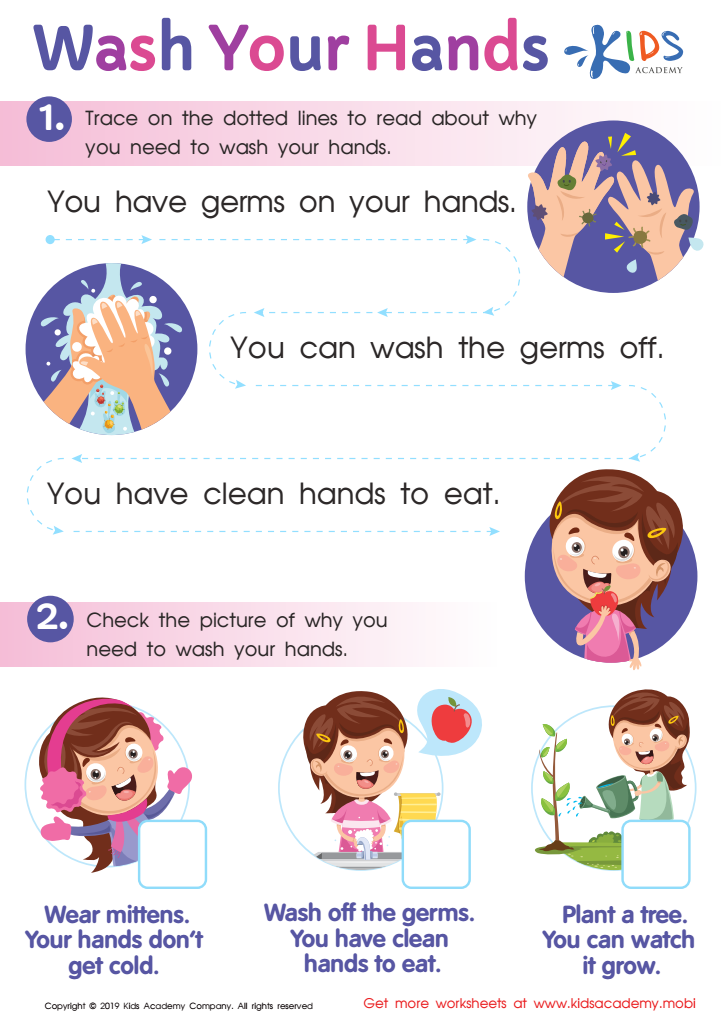

Wash Your Hands Worksheet
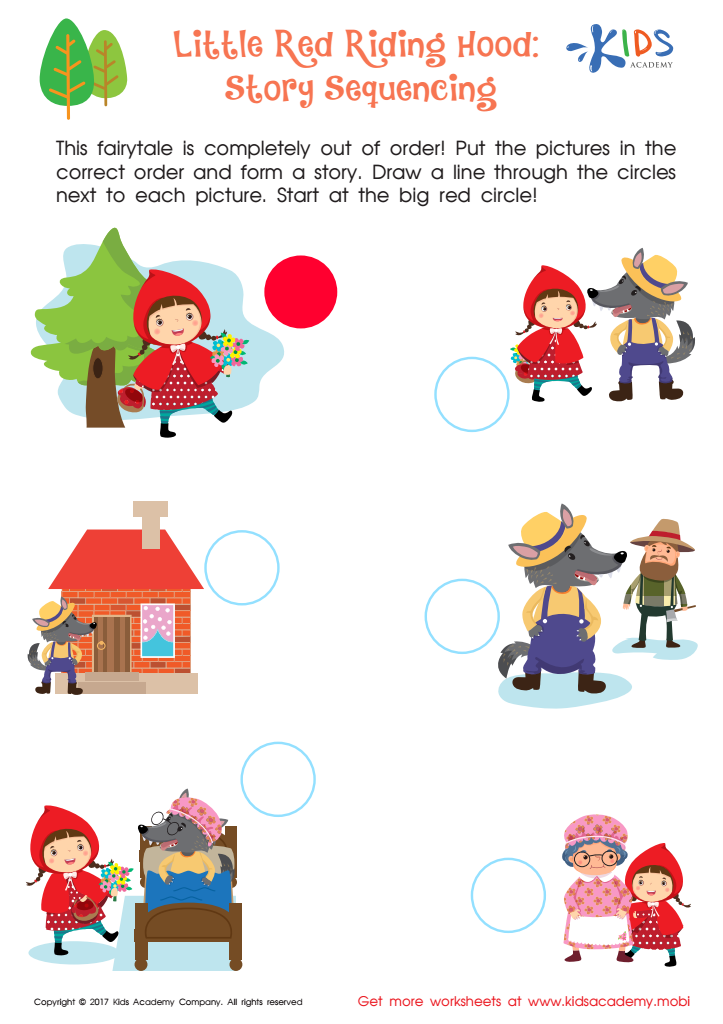

Story Sequencing Printable
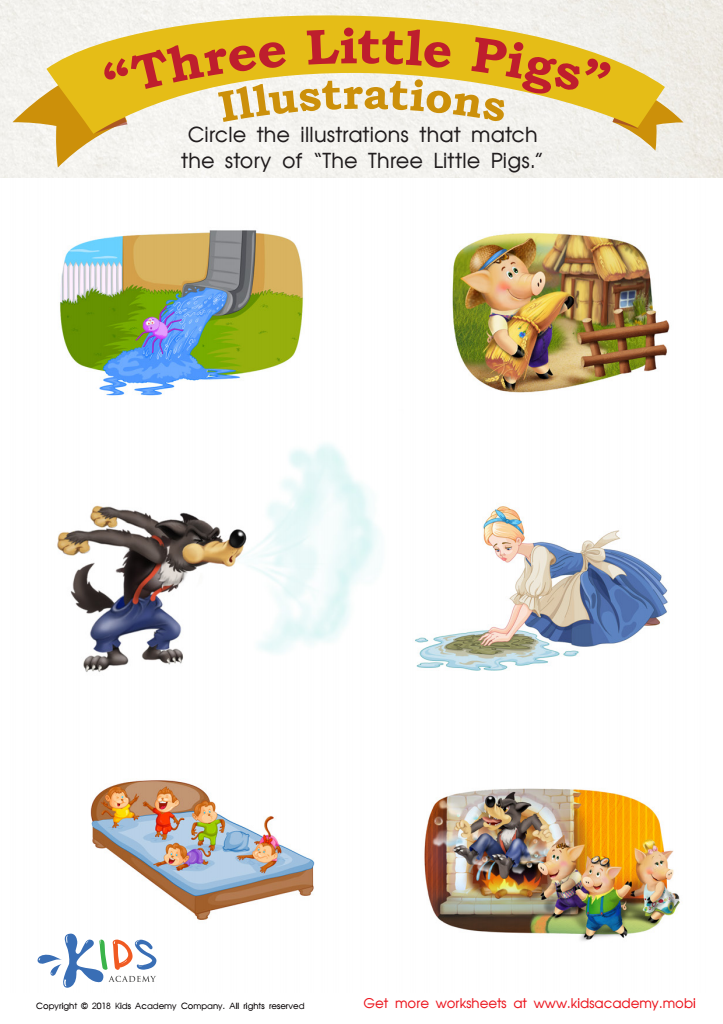

Three Little Pigs: Illustrations Worksheet
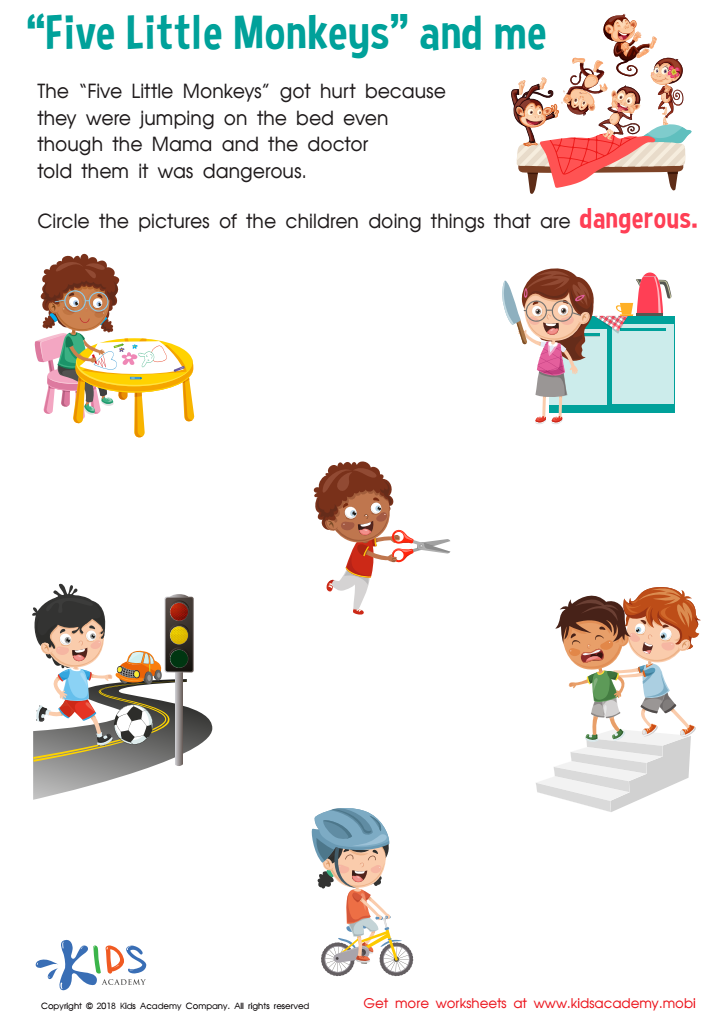

Five Little Monkeys and Me Worksheet
Sequencing skills are crucial for 5-year-olds as they embark on their reading journeys, particularly in fiction. Understanding the order of events in a story enhances comprehension and retention. When children grasp the sequence of events, they can better predict outcomes, identify cause-and-effect relationships, and follow narratives with more clarity. This foundational skill is essential not only for reading but also for critical thinking and problem-solving, as it encourages children to consider how events are interconnected.
Parents and teachers play a pivotal role in fostering these skills. Engaging young readers with questions about story progression helps them articulate and understand the sequence, encouraging active participation in their learning process. Activities such as retelling stories, creating picture sequences, or using timelines can make learning enjoyable and effective.
Moreover, strong sequencing skills can lead to improved writing abilities as children learn to structure their own narratives logically. By prioritizing sequencing in fiction reading, both parents and teachers can contribute significantly to a child's literacy development, empowering them to make sense of the world around them and enhancing their academic success in subsequent years. Ultimately, fostering sequencing skills lays a solid groundwork for reading confidence and lifelong learning.

 Assign to My Students
Assign to My Students





.jpg)


